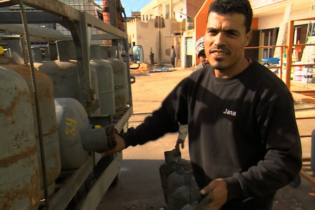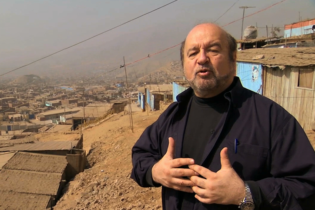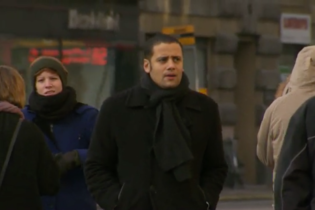How can you call this a globalized world when 80% of its inhabitants are locked out?
Client: Free to Choose Media for PBS
Category: Television, Video
Globalization has produced more prosperity in the past 60 years than in the previous two thousand. But unless we include the 80 percent of humanity that are excluded from the benefits of the system, they will bring globalization down, as they have in the past.
This handsome program is hosted by renowned Peruvian economist and author, Hernando de Soto. De Soto thinks the developing world is going through the same kind of legal and social revolution that the West has undergone. The team literally flew around the world on this shoot as de Soto takes us to:
- suburban Chicago,
- a feudal village in Switzerland,
- across Albania as a couple prepares for a wedding,
- an old mining town in the Rockies, to see that our history is also one of informality
- Tokyo Japan, to see how postwar changes gave titles to the majority, and not just the upper classes
- the Lower East Side of New York, a third-world country in the 19th
- the vast pueblos jovenes of Lima and in the high Andes of Peru,
- with the Maasai of Tanzania,
- Shanghai, China and Suzhou, China, which may be the world’s largest industrial park,
We travel to the UN, where de Soto co-chaired, with Madeleine Albright, the UN Commission for the Legal Empowerment of the Poor.

Hernando de Soto
President, Institute of Liberty & Democracy
“They’re watching TV, and they are looking at newspapers, or they are looking just over the hill and now they know how you live in the West…And they want that.”
When power began to shift in Europe
There was a time when all power–and the right to own property–resided with the aristocracy. But that began to change in the 16th century as townspeople grew more powerful. Power began to devolve from hilltop castles to the villages below. Once the masses could own property and make their own contracts, prosperity began to take off.
Over the next centuries, the West successfully revolutionized legal systems, property laws, and developed the modern corporation. Other nations that have instituted private property and business reforms — such as post-WWII Japan and present day China, have seen their economies take off rapidly and middle classes grow.
But the majority of people on the planet still live wretched existences in which, no matter how hard they work, they can never get ahead.
Globalization is at a crossroads because those people who want to join the system don’t feel anyone is reaching out to them. It’s time to bring them in. And it’s a win-win for us all.
The Origins & Deeper Meaning of Capitalism
In this segment Peruvian economist, Hernando de Soto, explores the origin and deeper meaning of capitalism. We compare markets in the high Andes and in the Chicago Mercantile Exchange, and home ownership in a rural Tanzanian village and suburban Chicago.





